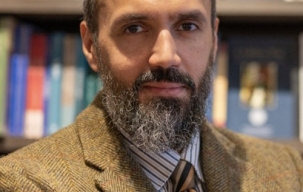Following the fall of the Ottoman Empire, the Trans-Jordan region was given, under British supervision, to the brother of the figurehead of the revolt, King Abdullah. The state of Transjordan, as it was then known, gained independence in 1946, but British troops remained in the country until 1957. The current king is the great grandson of the first monarch, King Abdullah I.
The Hashemite Kingdom of Jordan may have few natural resources but it often punches above its weight when it comes to regional politics. It is a key ally of the United States and together with Egypt, the UAE, Morocco and Bahrain, is one of 5 Arab countries to have normalised relations with Israel and the second, after Egypt, to have done so.
History
Jordan's strategic importance down the years is largely based in its location, slap bang at the centre of what the 3 main Abraham faiths call the Holy Land.
Jordan emerged as a kingdom from the post-First World War division by the UK and France of what had been Ottoman Empire territory in the Middle East.
Much of the surrounding region has been at war for the past decade, resulting in Jordan having one of the highest refugee populations in the Middle East. More than a quarter of the population of Jordan is made up of displaced Palestinians, Syrians and Egyptians.
Israel and Palestine
The Israel-Palestine conflict has been of particular importance to Jordan. At the time of the 1994 peace treaty with Israel, Jordan had been officially at war with Israel for 46 years.
The first Israel-Palestine conflict began on May 15th 1948, the day after with Israel's Declaration of Independence. The Hashemite Kingdom of Transjordan, as it was then known, was one of 4 surrounding Arab nations that attacked Israel but the war ultimately ended in defeat for the Arab coalition.
The war was a mixed blessing for Transjordan, in that it was unable to prevent the establishment of Israel but it did mean that it was able to annex much of the West Bank of the River Jordan, including East Jerusalem and the historic Old City.
Rapid succession
In 1949, the Kingdom underwent its 2nd name change in 3 years by becoming the Hashemite Kingdom of Jordan. In July 1951, while visiting the Al-Aqsa Mosque in Jerusalem's Old City, the country's founding father, King Abdullah 1, was assassinated by a 21 year old Palestinian tailor's apprentice.
King Abullah was succeeded by his eldest son Talal, who was forced to abdicate in a year later in 1952 on grounds of mental illness. King Talal was succeeded the following year by King Hussein who ruled Jordan until his death in February 1999.
The Six Day War
Jordan paid a heavy price for participating in the fighting against Israel during the Six Day War of June 1969. Israel gained almost total control of the West Bank and East Jerusalem, including the Old City. The conflict led to an influx of many thousands of Palestinian refugees into Jordan, including Palestinian fighters, the Fedayeen, whose activities were to destabilise Jordan soon afterwards.
According to some estimates, there are now more than 2 million registered Palestinian refugees in Jordan.
Black September and the PLO
In September 1970, the actions of the Fedayeen had brought Jordan to the edge of civil war. Many considered the PLO fighters a state within a state, a claim underlined by the hijacking of 3 passenger airliners by the Popular Front for the Liberation of Palestine, one of the biggest groups making up the PLO. The PFLP had the planes flown to an airfield at the Jordanian city of Zarqa and after evacuating them, had them all blown up in front of TV cameras.
This was the final straw for King Hussein, who attacked PLO positions in Jordan. Syria joined sides with the Fedayeen but Jordan defeated swiftly defeated the Syrians. Following a short truce, Jordan attacked the Fedayeen again, driving them out of the cities. King Hussein allowed the PLO to leave Jordan for Lebanon via Syria. Soon the Fedayeen would help destabilise Lebanon.
Renunciation of claim on the West Bank
In June 1986, Jordan's relationship with the PLO hit new lows when the government order the closure of the offices of Fatah, the largest group in the PLO and led, like the PLO itself, by Yasser Arafat.
In June 1988, the Arab League gave the PLO financial control of support for the Palestinians. In response, King Hussein renounced all of Jordan's claims to the West Bank, allowing the PLO to one day assume all responsibility there. The King also dissolved Jordan's parliament as half the members were West Bank representatives.
In November 1988, the Palestine National Council, the PLO's legislative body, proclaimed the independence of a purely notional Palestine. King Hussein immediately extended recognition to the entity.
Peace with Israel; accords with the PLO
King Hussein initially expressed reservations about the so-called Oslo Accords, the peace agreement signed by Israel and the PLO but expressed his support for the Palestinians.
In 1994, Jordan would sign a peace treaty in which King Hussein was recognised as the custodian of the Muslim holy sites in East Jerusalem, principally Al-Aqsa in the Old City. In January 1995, Jordan signed accords with the PLO, pledging support for Palestinian autonomy and the establishment of a Palestinian State to include East Jerusalem.
A new king, terror and reform
King Hussein died in February 1999 to be succeeded by son, King Abdullah II. The new King embarked on building solid economic and political ties with neighbours, particularly Egypt and Syria.
At home, King Abdullah's attempts at electoral reform were hindered by difficult identity politics that often pitted Jordanians of Palestinian origin against Jordanians of Bedouin origin.
Jordan also faced serious security threats, particularly following the US-led invasion and occupation of Iraq and rise of the Islamic State group from 2013.
A Jordanian jihadi called Abu Musab al-Zarqawi led the Al Qaeda in Iraq group when it claimed responsibility for a coordinated attack on 3 hotels in the capital Amman. The attacks left 57 dead and 115 injured.
In September 2014, Jordan joined in the US-led air attack on IS in Syria. in December 2014, a Jordanian pilot, Muath al-Kasabeh, was captured by IS and burned to death some weeks later.
Jordan economy
Jordan’s main trade resource is potassium, of which it trades over 2 million tons a year. The government has also been heavily investing in the ICT sector, and hosted the World Economic Forum Middle East meeting in 2018.
 Members content
Members content

